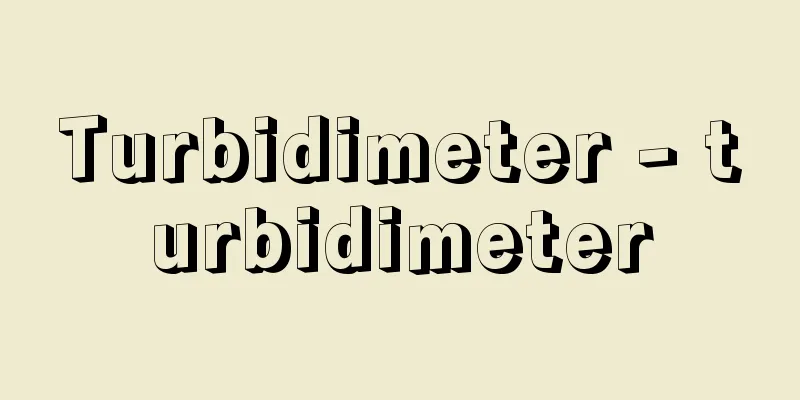ego

|
…That is why, except for anthropomorphic expressions, the word is only used for self-conscious things. In Europe, for example, the modern English word I was anciently called ic, a word of the same family as German ich, and can be traced back to Latin ego and Greek egō. In these languages, the subject person is usually indicated by a verb conjugation, so ego and egō were only used when the speaker particularly emphasized himself. … *Some terminology explanations that mention "ego" are listed below. Source | Heibonsha World Encyclopedia 2nd Edition | Information |
|
…だからこそ,その語は,擬人的表現などの場合を除けば,自己意識をもったものにしか使われないのである。 ヨーロッパでも,たとえば現代英語のIは,古くはicであり,ドイツ語のichなどと同族の語であって,ラテン語のエゴegoやギリシア語のegōにさかのぼることができる。ところで,これらの言語では普通,主語の人称は動詞の変化で示されるから,egoやegōという語は,話し手がとくに自分を強調する場合にしか使われなかった。… ※「ego」について言及している用語解説の一部を掲載しています。 出典|株式会社平凡社世界大百科事典 第2版について | 情報 |
Recommend
Ayu - Ayu
...Many of these songs have a strong historical c...
Trichophyton mentagrophytes
…Candida [Takayuki Harada]. . . From 【Athlete'...
Iphigenie in Aulis - Iphigenie in Aulis
…He visited Paris five times between 1773 and 177...
Akayamaari (English spelling) slave-making ant
An insect belonging to the order Hymenoptera, fam...
Spectrum - spectrum (English spelling)
A band of light images arranged in the order of w...
Revolution - Kakumei (English spelling) revolution
In a broad sense, it means a sudden change in thi...
Neugrad
…It was created during the French Revolution to a...
Sake Brewing Song - Sake Brewing Song
Also called "sakaya-uta," these are labo...
Magoshi Kyohei
Businessman. Born in Kinoko Village, Bitchu Provi...
Izumi Shikibu Collection
A collection of poems by Izumi Shikibu. A collecti...
Seaman - Kaiin (English spelling) seamen
A crew member other than the captain who works on ...
Lovebirds - Oshidorifuufu
…The male's non-breeding plumage is very simi...
Song Thrush - Song Thrush
…But it is said that among all the birds that her...
Pulque (English spelling)
A Mexican alcoholic drink made by fermenting the s...
Full
…an ethnic group living widely in West Africa. Th...









